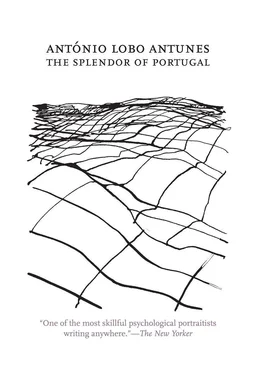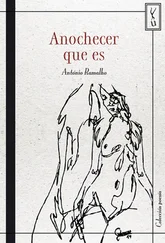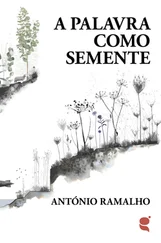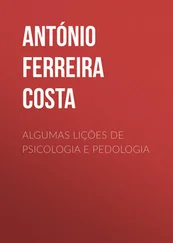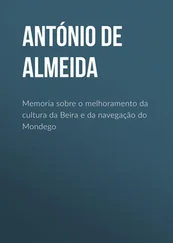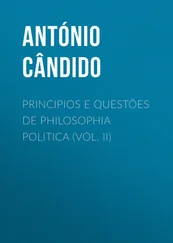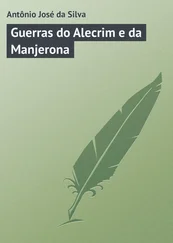António Antunes - The Splendor of Portugal
Здесь есть возможность читать онлайн «António Antunes - The Splendor of Portugal» весь текст электронной книги совершенно бесплатно (целиком полную версию без сокращений). В некоторых случаях можно слушать аудио, скачать через торрент в формате fb2 и присутствует краткое содержание. Год выпуска: 2011, Издательство: Dalkey Archive Press, Жанр: Современная проза, на английском языке. Описание произведения, (предисловие) а так же отзывы посетителей доступны на портале библиотеки ЛибКат.
- Название:The Splendor of Portugal
- Автор:
- Издательство:Dalkey Archive Press
- Жанр:
- Год:2011
- ISBN:нет данных
- Рейтинг книги:3 / 5. Голосов: 1
-
Избранное:Добавить в избранное
- Отзывы:
-
Ваша оценка:
- 60
- 1
- 2
- 3
- 4
- 5
The Splendor of Portugal: краткое содержание, описание и аннотация
Предлагаем к чтению аннотацию, описание, краткое содержание или предисловие (зависит от того, что написал сам автор книги «The Splendor of Portugal»). Если вы не нашли необходимую информацию о книге — напишите в комментариях, мы постараемся отыскать её.
The Splendor of Portugal — читать онлайн бесплатно полную книгу (весь текст) целиком
Ниже представлен текст книги, разбитый по страницам. Система сохранения места последней прочитанной страницы, позволяет с удобством читать онлайн бесплатно книгу «The Splendor of Portugal», без необходимости каждый раз заново искать на чём Вы остановились. Поставьте закладку, и сможете в любой момент перейти на страницу, на которой закончили чтение.
Интервал:
Закладка:
me at the end of the appointment while Rui got dressed with the nurse’s help
“What’s wrong with the little guy Doctor?”
“A hereditary cerebral condition ma’am electrical synapses out of order his behavior could change”
they dragged and shoved him to the threshing floor, began to beat him with hoes and sticks and he didn’t defend himself or even scream out, the bum smiled more and more with every blow, I remember a hunchbacked olive tree in the sunlight, men raising and lowering the harrows, the lunatic, always with a smile, pulled his comb out of his pocket to straighten his hair, a second later a stone crushed his chest and the locks of his hair looked like the nest that a group of storks had built on the edge of the water tower
“Become aggressive for example become disobedient give him these pills at lunch and dinner and come in for another appointment in May”
branches and leaves and mud and pieces of cloth, after the farmers took off I remained alone with the man for some time before the police showed up, me and those fearless pigeons returning to the dam, since nobody was looking I took the lunatic’s comb, a broken comb with missing teeth, hid it in the dresser drawer behind my pencils and school notebooks, I kept it with me for years and years in a scratched and dented cookie tin with no picture on the lid, any time I touched it I could see the houses in Nisa and the calf walking into the town square tripping over its own entrails, no one else could ever understand what it was, no matter who it was
“Is this a comb Isilda?”
“It’s nothing”
“I bet it’s a piece of a comb show me”
“I’m not going to show you it’s nothing leave me alone”
and I think that it was around this time that I realized there was something terrible in me. I woke up at night to the rustling of the sunflowers
“You wake up because of the sunflowers but not when the little ones cry”
my womb grew bigger in the darkness of the bedroom with something that wasn’t a child, it was a sort of scream that, instead of coming out of your mouth, comes out of your entire body filling the fields like the howling of dogs, I smiled the same smile as the man lying facedown on the threshing floor about whom the police chief advised my uncle
“Bury him in the gully where they bury stray dogs it’ll serve as compost for the reeds that grow there and this matter is settled”
I agreed to allow Carlos
(no, not Carlos)
to develop inside me in order to smother the scream, in pregnancy my body became a coffin inside which a cadaver was growing
“Are you going to comb the baby’s hair with that ghastly comb Isilda?”
“No I’m not leave me alone get out of here”
and after that Clarisse, and after that Rui, me like an eviscerated calf bleeding and tripping over my own entrails each time one was born, sliced open from neck to groin spilling all over myself in exhausted anguish, without any objection, any complaint, any harsh word, facedown on the sheets
“Turn over Mrs. Isilda turn over on your back immediately what are you doing?”
with the comb in my hand, smiling in defiance at whoever was killing me because there is something terrible in me that you all don’t know about but that animals and blacks are aware of, the servants are aware of it watching me guardedly any time I step foot in the kitchen to arrange the meals, as if I were wasting away right in front of them, something terrible that was passed on to Rui
“A hereditary condition ma’am a complication that is transmitted from parent to child you can never tell how they’re going to behave”
and that Carlos and Clarisse don’t have, since neither animals nor Africans are frightened by them, they curl up at their feet, allow themselves to be scratched and petted, smelling them, laugh, another way of being quiet, hanging on them, looking at them, an expression, a smell, the house was different without children, not bigger, different, they say that when children leave home the houses get bigger and become sad, it’s not true, upon returning to the plantation from Luanda where the boat had left amid pure chaos, full of baggage and people not to mention refrigerators and ovens and automobiles left on the docks that the Cubans and residents of the slums fought over at gunpoint, willing to die for a hot plate or a broken dishwasher and carrying them out of the city, a trail of ants, upon returning to the plantation from Luanda the house had changed, everyday objects were strange to me, I recognized the chairs and didn’t sit in them, the framed pictures showed strangers whose habits and names I happened to know, the cook, the only creature in the world whom Carlos ever liked, he didn’t like me, didn’t like his siblings, didn’t like his wife, he liked her, leaning over the side of the boat to remind me to take good care of her, Maria da Boa Morte who smoked with the lit end of the cigarette inside her mouth, I taught her good manners the way you teach an animal, hired her out of pity to work among the cups and kale, and my son, no one could ever explain this one to me, never letting go of her for a second, drinking out of her hand, eating out of her hand, insisting she tuck him in so he could get to sleep, he never asked for me or his father to do it, Maria da Boa Morte was the one he wanted, just in the door on break from boarding school and he’d be sitting in the dining room talking to her, upon returning to the plantation from Luanda the house had changed, everyday objects were strange to me, I recognized the chairs and didn’t sit in them, the past showing in those picture frames no longer belonged to me, who the hell is this, who the hell is that, that lady over there arm-in-arm with my husband is wearing a hat I used to own
“That hat looks so nice on you Isilda”
I sent away for it in Portugal, wore it with sapphire earrings to the dinner party at the governor’s place, I was radiant at Rui’s baptism, took it to Europe with me, visited Paris in it, walked along the seaside wearing it in Barcelona, if I ever felt upset I’d go get it, lock the door to my room, and try it on in front of the mirror even with no lipstick on, even with no eye shadow, and it gave me the urge to sing, back around the time my mother got sick I never went a week without wearing my suede shoes, I’d clamber up into the attic in secret, look for it in the trunk, show it to my mother and my mother
“How beautiful”
not just to please me, but sincerely
“How beautiful”
raising her wrist up off the mattress and gently touching the hat with her fingertips
“How beautiful”
if someday I go to Lisbon to see my children I’ll have it mended by the seamstress in Malanje, I’ll have its crown fixed, do something with the brim, some small stitches in the holes in the gossamer that will hardly be noticeable, I take the hat that I bought in Rome down off the coatrack and leave it on the landing of the stairs so they can all see it, me at age thirty, happy, no wrinkles on my cheeks, Clarisse and Rui on my lap, Carlos hiding behind the cook
“Let go of me”
with the lit end of the cigarette inside her mouth, eating dried fish with her in the pantry, he doesn’t like his siblings, doesn’t like his wife, he likes the destitute street urchins and palm oil, chickens wandering in and around the workers’ huts, upon returning to the plantation from Luanda the cook had changed too, wearing slippers on the tile floor, unafraid of me for the first time, banging on the broken dinner bell to call everyone to lunch, Maria da Boa Morte Josélia Damião Fernando, they served the food wearing white coats with gold buttons, I lent them to the bishop for the party in honor of the nuncio’s visit, outdoor music, yellow canopies, the church choir, the invited guests sweating in their flannel dress shirts, the nuncio surprised by the servants’ efficiency
Читать дальшеИнтервал:
Закладка:
Похожие книги на «The Splendor of Portugal»
Представляем Вашему вниманию похожие книги на «The Splendor of Portugal» списком для выбора. Мы отобрали схожую по названию и смыслу литературу в надежде предоставить читателям больше вариантов отыскать новые, интересные, ещё непрочитанные произведения.
Обсуждение, отзывы о книге «The Splendor of Portugal» и просто собственные мнения читателей. Оставьте ваши комментарии, напишите, что Вы думаете о произведении, его смысле или главных героях. Укажите что конкретно понравилось, а что нет, и почему Вы так считаете.
